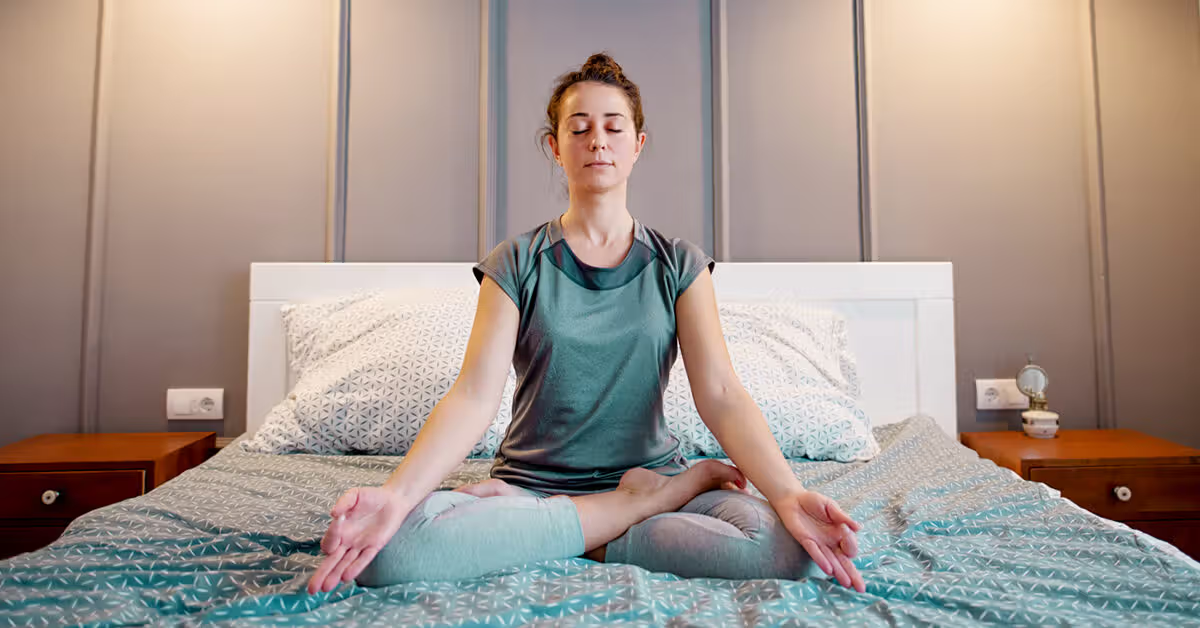If you’re a mom, you’re probably tired. Not the “I’ll just take a quick nap and feel better” kind of tired—the deep, soul-level exhaustion that no amount of caffeine seems to fix. Between middle-of-the-night wake-ups, endless to-do lists running through your brain, and the mental gymnastics of planning everything for everyone, sleep often feels like a luxury you can’t afford.
But here’s the thing: you need it. And no, not just a few scraps of rest that leave you barely functioning. You need deep, restorative sleep that actually lets you wake up feeling like a human being again.
The good news? It’s possible. The bad news? It requires breaking some habits that might be keeping you wired at night. If you’re ready to stop feeling like a sleep-deprived zombie, here’s how to make better rest happen—starting tonight.
Stop Letting Your Brain Run the Show
You finally crawl into bed, ready to sleep… and suddenly, your brain decides it’s the perfect time to remind you about the permission slip you forgot to sign, the email you meant to send, or the laundry still sitting in the washer. Sound familiar? Moms don’t just struggle with sleep because of physical exhaustion—it’s the mental load that keeps them awake. The constant running list of things to do, plan, and worry about doesn’t magically shut off at bedtime.
That’s why a brain dump is one of the best things you can do before bed. Keep a notebook by your bed (yes, an actual notebook, not your phone) and spend five minutes writing out everything that’s cluttering your mind. Grocery lists, school projects, random thoughts—dump them all on paper. Getting them out of your head and onto a page helps signal to your brain that you don’t need to hold onto them overnight. It’s shockingly effective at cutting down those late-night stress spirals.
Your Nighttime Routine Might Be the Problem

Everyone tells moms to “prioritize sleep,” but let’s be real—when the house is finally quiet, it’s tempting to steal back some time for yourself. Scrolling on your phone, watching “just one more episode,” or catching up on emails might feel like the only chance you get to unwind, but they’re wrecking your ability to get good sleep.
The goal isn’t just more sleep—it’s quality sleep. That means setting yourself up to actually reach the deep, restorative stages where your body and brain recover. Bright screens, late-night caffeine, and chaotic bedtime routines make it harder for your body to shut down properly. Even something as simple as dimming the lights an hour before bed and swapping your phone for a book can help reset your sleep patterns. If you’re not ready to quit your favorite show, at least lower the screen brightness and put your phone in night mode to cut down on blue light exposure. Small tweaks add up fast.
Your Mattress and Pillow Situation Matter More Than You Think
If your back aches in the morning, your neck feels stiff, or you find yourself tossing and turning all night, your bed setup is probably to blame. Moms often invest in good mattresses for their kids but sleep on lumpy, old ones themselves. If your bed isn’t comfortable, you’re never going to sleep well—no matter how much melatonin you take.
Memory foam pillows, cooling sheets, or even just a better mattress topper can make a huge difference. If replacing your whole mattress isn’t in the budget right now, try adjusting how you sleep. Side sleepers need more support for their hips and shoulders, while back sleepers do better with medium-firm pillows. Your body changes after kids, and your bed needs to work with you, not against you.
The One Trick That Actually Helps You Relax
Some moms struggle to fall asleep. Others wake up at 2 AM and can’t shut their brain off. Either way, stress is usually the root of the problem. You might not feel anxious, but your body is constantly in high-alert mode, making it impossible to truly relax at night.
That’s where natural sleep aids come in. A lot of people reach for melatonin, but it doesn’t work for everyone—and if you don’t time it right, it can actually leave you feeling groggy in the morning. A better alternative? Cbd gummies help promote feelings of calm and even help your sleep schedule get back on track. They don’t knock you out the way sleeping pills do, but they help take the edge off, making it easier to fall asleep and stay asleep. If stress and restlessness are ruining your nights, they’re worth considering.
Wake Up the Right Way (So You Don’t Feel Like a Zombie)
Bad mornings start with bad nights, but how you wake up also affects how tired you feel. If the first thing you do is reach for your phone and immediately get bombarded with emails, news, or social media, you’re starting the day in stress mode before your feet even hit the floor.
Instead, try easing into the morning differently. Open the blinds to let in natural light, stretch for a few minutes before getting up, or drink a glass of water before grabbing coffee. It sounds small, but these tiny habits help your body wake up gradually instead of being jolted into survival mode.
If possible, avoid checking your phone for the first 15 minutes after waking up. Giving your brain space to start the day without instantly reacting to notifications makes a surprising difference in how rested you feel—even if you didn’t get a full eight hours.
Small Changes, Big Results
You might not be able to control the midnight wake-ups or the early-morning kid chaos, but you can control what happens in between. Better sleep doesn’t have to be a lost cause—it just takes some small, intentional changes. A calmer nighttime routine, better sleep habits, and a little extra support can add up to real rest. And let’s be honest: you deserve it.


















